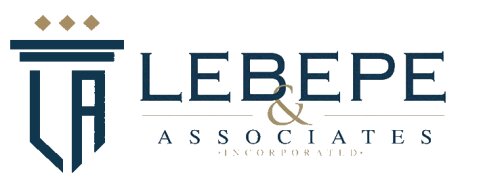Best Private Equity Lawyers in Polokwane
Share your needs with us, get contacted by law firms.
Free. Takes 2 min.
List of the best lawyers in Polokwane, South Africa
About Private Equity Law in Polokwane, South Africa
Private equity is an area of finance that deals with investments in private companies or buyouts of public companies, resulting in their delisting from stock exchanges. In Polokwane, South Africa, private equity activity has grown as the city expands as a business hub in Limpopo. Private equity law covers the legal frameworks that guide the formation, operation, structuring, and dissolution of private equity funds, as well as investments and exits. Legal advisors play a critical role in ensuring all transactions comply with South African regulations and international best practices.
Why You May Need a Lawyer
Entering the world of private equity involves a range of complex legal issues and financial risks. You may need a lawyer in several circumstances, including:
- Drafting or reviewing private equity fund agreements
- Structuring investments to comply with regulatory requirements
- Negotiating terms between investors and management teams
- Due diligence on target companies prior to investment
- Mergers and acquisitions involving private equity funding
- Advising on tax implications related to private equity investments
- Managing exits from investments, such as initial public offerings or company sales
- Resolving disputes between partners or stakeholders
- Ensuring compliance with competition, company, and securities laws
- Protecting intellectual property involved in private equity deals
Because each transaction presents unique legal challenges, securing advice from a qualified private equity lawyer in Polokwane is crucial to protecting your interests.
Local Laws Overview
South African private equity is regulated under several local statutes and frameworks that impact Polokwane-based deals and businesses. Some of the most relevant laws include:
- Companies Act 71 of 2008: Provides comprehensive regulations for the creation, operation, and governance of companies, including the rights of shareholders and procedures for mergers and acquisitions.
- Financial Advisory and Intermediary Services Act (FAIS): Regulates those providing advice or intermediary services related to financial products, affecting both fund managers and investors.
- Competition Act 89 of 1998: Ensures that mergers and acquisitions do not result in unfair market dominance or restrict competition, requiring notification and approval of certain transactions.
- Exchange Control Regulations: Set by the South African Reserve Bank, these govern cross-border investments, currency exchanges, and repatriation of profits by foreign investors.
- B-BBEE (Broad-Based Black Economic Empowerment) Legislation: Influences private equity transactions by promoting inclusive ownership and management in investments and business operations.
- Income Tax Act and related tax laws: Determine the tax consequences of private equity funding structures, capital gains, and profit distributions.
Given the interplay of local economic development initiatives and national regulations, navigating private equity in Polokwane demands careful legal guidance.
Frequently Asked Questions
What is private equity and how does it differ from other types of investment?
Private equity is capital invested directly into private companies or the buyout of public companies, removing them from stock exchanges. Unlike public investments, private equity is less liquid and usually involves active involvement in management to grow the business before exit.
What is the typical private equity process in Polokwane?
The process usually involves fund formation, capital raising, sourcing investment opportunities, due diligence, acquisition, value creation, and eventual exit, often through a sale or public offering.
Are there specific legal requirements for foreign investors interested in private equity in Polokwane?
Yes, foreign investors must comply with exchange control regulations, local company law, and B-BBEE requirements depending on the sector and deal structure.
What regulatory authorities oversee private equity transactions in South Africa?
The Financial Sector Conduct Authority supervises fund management and investment advice, while the Competition Commission reviews mergers. The South African Reserve Bank manages exchange control matters.
What due diligence should be conducted before a private equity investment?
Legal, financial, and commercial due diligence should be performed to evaluate the target company's compliance, liabilities, contracts, employment matters, and overall viability.
How are private equity funds structured in South Africa?
Most funds are structured as limited partnerships or en commandite partnerships, under South African law, which allows for flexibility and tax efficiency.
What are the main risks for investors in private equity deals?
Risks include potential loss of capital, illiquidity, regulatory non-compliance, legal disputes, and economic downturns affecting portfolio company performance.
How do B-BBEE laws affect private equity investments?
B-BBEE regulations encourage broad-based economic participation by historically disadvantaged South Africans. Private equity investors may need to consider B-BBEE compliance for both the fund and portfolio companies.
Can legal disputes arise in a private equity transaction?
Yes. Disputes may arise regarding profit sharing, management issues, breaches of contract, or failure to meet performance milestones. Having a clear agreement and legal counsel is essential.
How can a Polokwane-based lawyer assist during the exit phase of a private equity investment?
A qualified lawyer can help structure the exit, draft sale agreements, navigate regulatory approvals, and ensure tax efficiency during public offerings, trade sales, or management buyouts.
Additional Resources
If you are seeking more information or assistance regarding private equity in Polokwane or South Africa broadly, you may consult the following organizations and governmental bodies:
- South African Private Equity and Venture Capital Association (SAVCA)
- Companies and Intellectual Property Commission (CIPC)
- South African Reserve Bank (SARB)
- Financial Sector Conduct Authority (FSCA)
- Competition Commission of South Africa
- Local chambers of commerce or business development agencies in Polokwane
These entities provide guidelines, regulations, and support for investors, fund managers, and companies involved in private equity.
Next Steps
If you are considering a private equity transaction or investment in Polokwane, take the following steps to ensure a smooth and compliant process:
- Identify and clarify your investment or funding needs
- Seek out a lawyer or law firm specializing in private equity and corporate law, preferably with experience in the Polokwane market
- Gather all documentation and information about your business or the investment opportunity
- Engage in an initial legal consultation to evaluate risks and legal requirements
- Allow your legal advisor to assist in due diligence, deal structuring, and negotiations
- Work closely with your lawyer throughout the transaction to ensure compliance with all applicable laws and regulations
- Plan your exit strategy and related legal considerations early in the investment process
Navigating private equity successfully requires both sound commercial judgment and strict legal compliance. Consulting with the right legal professional will help manage your risks and guide you toward achieving your business goals in Polokwane.
Lawzana helps you find the best lawyers and law firms in Polokwane through a curated and pre-screened list of qualified legal professionals. Our platform offers rankings and detailed profiles of attorneys and law firms, allowing you to compare based on practice areas, including Private Equity, experience, and client feedback.
Each profile includes a description of the firm's areas of practice, client reviews, team members and partners, year of establishment, spoken languages, office locations, contact information, social media presence, and any published articles or resources. Most firms on our platform speak English and are experienced in both local and international legal matters.
Get a quote from top-rated law firms in Polokwane, South Africa — quickly, securely, and without unnecessary hassle.
Disclaimer:
The information provided on this page is for general informational purposes only and does not constitute legal advice. While we strive to ensure the accuracy and relevance of the content, legal information may change over time, and interpretations of the law can vary. You should always consult with a qualified legal professional for advice specific to your situation.
We disclaim all liability for actions taken or not taken based on the content of this page. If you believe any information is incorrect or outdated, please contact us, and we will review and update it where appropriate.













